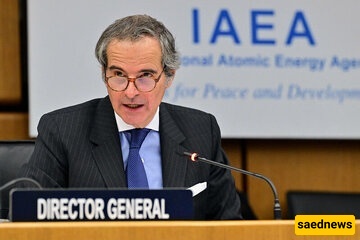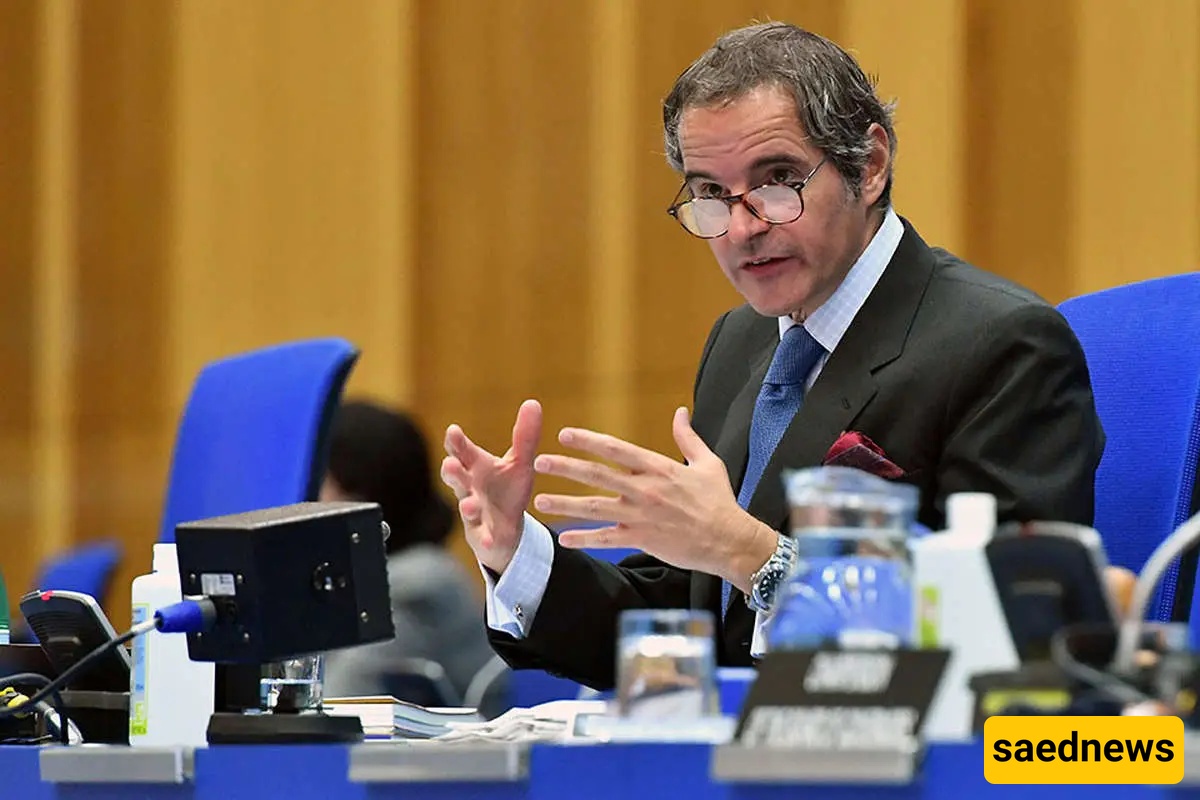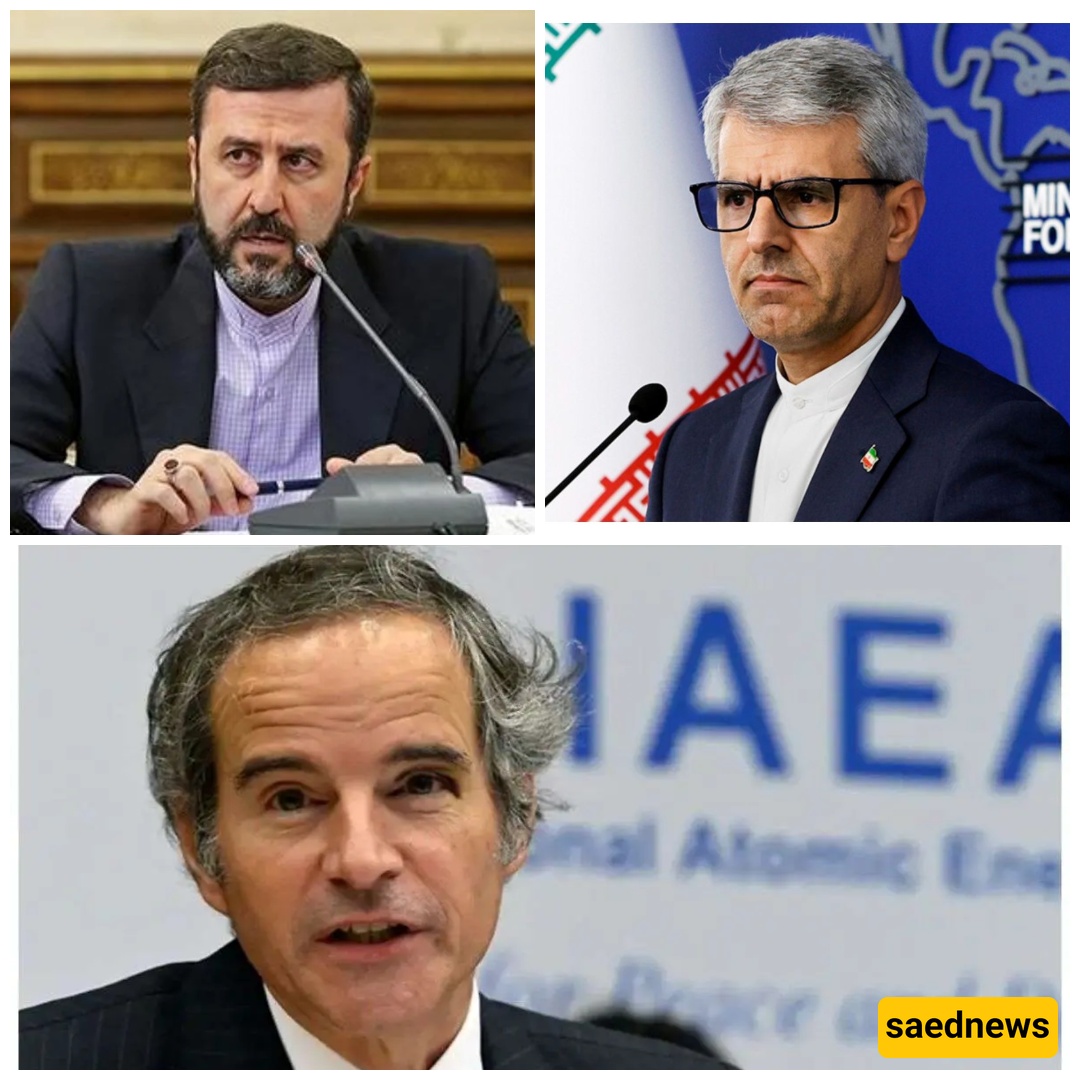SAEDNEWS: Rafael Grossi’s post-strike admissions and political manoeuvring have incensed Iranian officials, who now accuse the IAEA chief of enabling a coordinated Western-Israeli assault and undermining the global non-proliferation regime from within.

According to Saed News, Rafael Grossi, Director General of the International Atomic Energy Agency (IAEA), is facing growing scrutiny and condemnation from Tehran after a series of remarks and decisions that Iranian officials say directly contributed to the escalation of hostilities with Israel and the United States.
A week after Israeli forces launched a major strike on Iran’s peaceful nuclear facilities on 13 June 1404 (June 2025), Grossi belatedly admitted: “We had no evidence of a concerted Iranian effort to acquire nuclear weapons.” The admission, issued after hundreds of civilian casualties and extensive infrastructural damage, has been seen by Tehran not as a corrective gesture, but as a damning confirmation of the IAEA’s complicity in legitimizing aggression under a veil of technical oversight.

The Iranian government accuses Grossi and the IAEA of playing a central role in a pre-scripted scenario orchestrated by the West and its regional allies. According to Iranian analysis, the timeline is telling: in early 1404, the Trump administration proposed a 60-day negotiation window, only to undercut it with renewed sanctions on Iran’s oil and petrochemical sectors. Meanwhile, European states offered no meaningful diplomatic engagement beyond a solitary Istanbul meeting.
On the 60th day, the IAEA’s Board of Governors — bolstered by a report from Grossi and a resolution drafted by the E3 (UK, France, Germany) — voted to censure Iran. Within 24 hours, Israel launched its airstrikes, followed swiftly by American bombardment. Tehran sees this sequence not as coincidence, but as coordination — with Grossi at the fulcrum of an international campaign to provide legal and moral cover for war.
Grossi’s critics in Tehran — from Foreign Ministry spokesperson Esmail Baghaei and nuclear negotiator Kazem Gharibabadi to former diplomats like Mohammad Javad Zarif — have accused him of turning the IAEA into a political instrument for Tel Aviv and Washington. Zarif denounced Grossi’s “irresponsible” reports and called for his removal, while Gharibabadi described him as a “partner in crime.” Iran’s Atomic Energy Organization echoed the sentiment, accusing Grossi of betraying the agency’s technical mandate in favour of geopolitical intrigue.

Adding to the controversy, Grossi used an emergency UN Security Council meeting on 1 Tir 1404 (21 June 2025) — just days after American strikes — to declare his readiness to travel to Tehran, ostensibly to inspect the peaceful use of Iran’s nuclear programme. But his failure to condemn the bombings and his eagerness to verify damage at sites like Fordow, where bunker-busting munitions were reportedly deployed, has only fuelled Iranian suspicions that the IAEA is now serving intelligence-gathering purposes for hostile states.
Iranian officials have rejected the visit outright, with MP Esmail Kowsari proposing a permanent ban on Grossi’s entry to the country. They argue that his visit would be little more than a political reconnaissance mission — aimed not at verification, but at mapping vulnerabilities for future strikes.
Grossi’s actions have not only undermined his personal credibility, Iranian officials argue, but have also struck a severe blow to the broader non-proliferation architecture. The resolution passed by the IAEA Board — based on what Tehran calls "biased reporting" — is seen as a violation of Article IV of the Nuclear Non-Proliferation Treaty (NPT), which guarantees the right of all signatories to pursue peaceful nuclear energy.
Former Foreign Minister Zarif, invoking Article 51 of the UN Charter, reminded international observers that Iran reserves the right to self-defence. He also launched the hashtag “#RemoveGrossi” in a call for global accountability. The Iranian case, observers warn, sets a dangerous precedent: if the IAEA is perceived as a conduit for political pressure and military pretexts, its legitimacy and neutrality — cornerstones of the NPT regime — may be permanently compromised.
In the eyes of Tehran, Grossi’s tenure at the IAEA represents not a failure of management, but a breach of trust with global consequences. As Iran prepares to bring its case before international legal forums, the agency stands accused of abandoning impartiality in favour of power politics — a transformation that, if left unchecked, could imperil not just regional stability, but the future of the non-proliferation regime itself.

